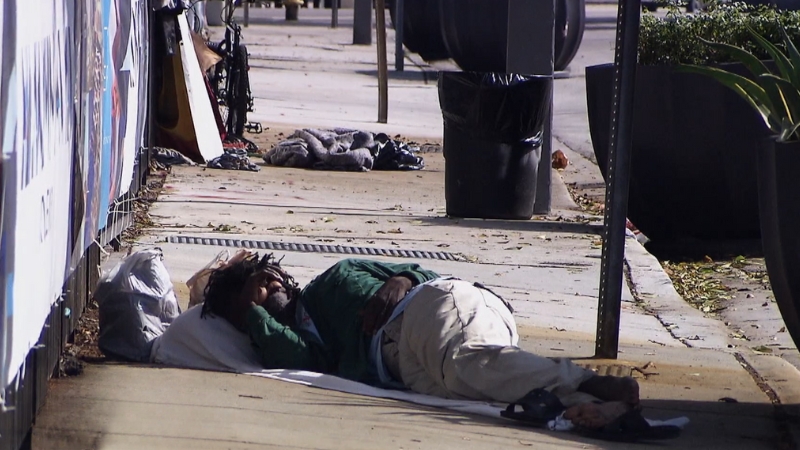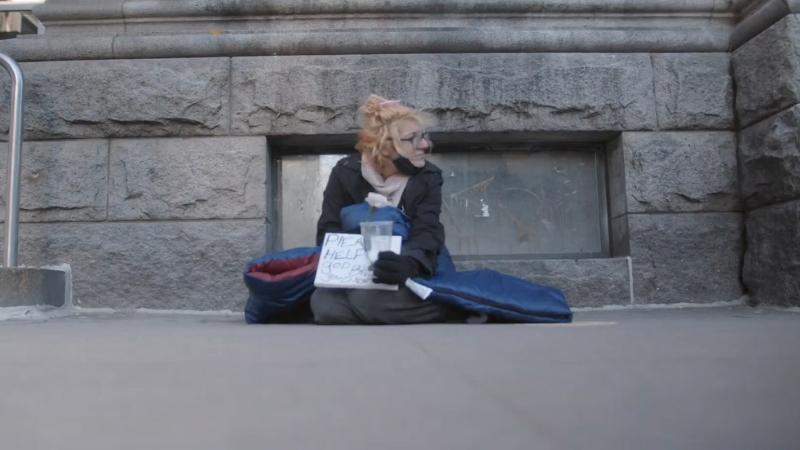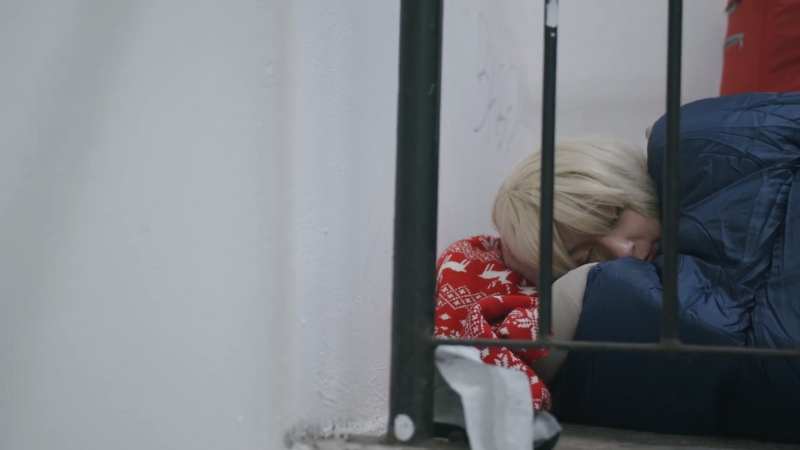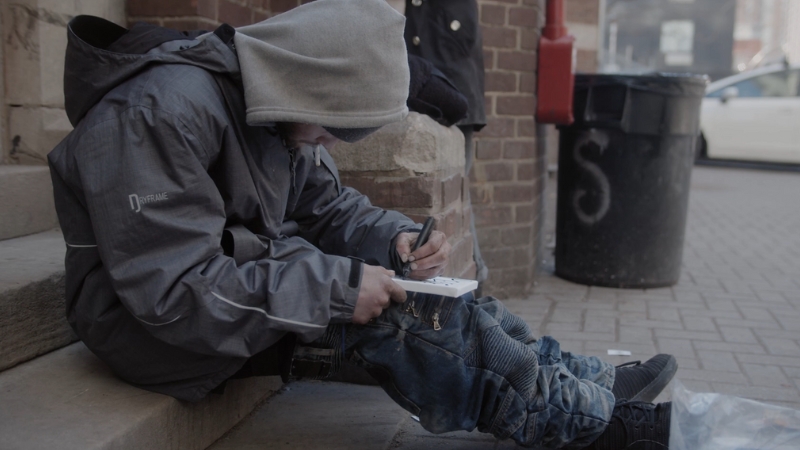With the cost of living skyrocketing and wages stagnant, more and more families are finding themselves one step away from losing everything.
It’s not just about people living on the streets—it’s about a system that’s failing to keep pace with rising rents, job losses, and financial instability.
According to the Department of Housing and Urban Development (HUD), Florida’s unsheltered homeless population has ballooned by almost 20 percent between 2022 and 2023.
It’s not just individuals sleeping rough—families have seen a staggering 22 percent increase in homelessness, while seniors now account for nearly one-third of the unsheltered population.
Think about that—grandparents, parents, and kids with no place to call home.
In Affordability Crisis: Florida’s Escalating Cost of Living
View this post on Instagram
Living in Florida used to feel like a dream—palm trees, sunshine, and relatively affordable living. That dream has morphed into a harsh reality for many, as the cost of living has rocketed out of control.
Blame it on the aftermath of COVID-19, skyrocketing rental rates, or inflation that just won’t quit—whatever the cause, people are being squeezed out of their homes at an alarming rate.
Families and seniors are being hit especially hard. Seniors now make up about one-third of the state’s unsheltered homeless population, while families have seen a 22 percent increase in numbers. In short, homelessness is no longer just a personal tragedy—it’s a systemic failure.
Policy Problem: Housing First vs. Criminalization
Florida’s lawmakers have taken a stance that some might call retributive rather than rehabilitative.
Instead of adopting proven solutions like Housing First—which focuses on providing stable housing as a foundation for recovery and reintegration—lawmakers have doubled down on criminalization. And that’s where House Bill 1365 (HB 1365) comes in.
HB 1365: Criminalizing the Symptom, Ignoring the Problem
I was glad to sign HB 1365, which:
– Prohibits camping on city streets, sidewalks, and parks
– Creates enforcement tools to ensure local governments comply with the law
– Ensures homeless shelters provide drug abuse and mental health counseling alternatives for when shelters…— Ron DeSantis (@GovRonDeSantis) March 20, 2024
Signed into law during the 2024 legislative session, HB 1365 bans local governments from allowing homeless encampments on public lands.
The law makes it illegal for anyone to “regularly engage” in public sleeping or camping on public property, including buildings, sidewalks, and streets.
The legislation does provide a single exception: encampments created by a municipality for less than a year that do not adversely affect property values or public safety.
Sounds like a loophole that could work, right? The criteria for what constitutes an “adverse effect” are so vague that practically any encampment can be disqualified. In practice, it’s an all-out ban on homeless encampments without offering a feasible alternative.
A Tale of Two Solutions: Housing First vs. Anti-Vagrancy Laws
The root problem with HB 1365 is that it attacks the symptom rather than addressing the underlying cause. It’s the legislative equivalent of slapping a band-aid on a bullet wound.
Housing First, on the other hand, approaches homelessness from a fundamentally different angle—by tackling housing insecurity head-on.
Why Housing First Works
Housing First programs have been around for decades, and the data backs up their effectiveness.
The concept is simple: instead of requiring people to “earn” housing by achieving sobriety or employment first, you give them a stable place to live from the start.
Then, wraparound services—like mental health support, job training, and substance abuse counseling—help individuals regain independence.
Evidence of Success
Meanwhile, criminalizing homelessness doesn’t just fail to solve the problem—it makes it worse. Fines and incarceration trap people in cycles of poverty and push them further from stability. Not to mention, it’s wildly inefficient and inhumane.
The Legal Battle: Grants Pass v. Johnson
@repcori Today, the Supreme Court is hearing arguments in Grants Pass v. Johnson—a case that could allow cities to criminalize unhoused people for sleeping on the streets. SCOTUS must uphold the constitutional rights of our unhoused neighbors and choose housing, not handcuffs. #coribush #housing #congress ♬ original sound – RepCori
HB 1365 mirrors a controversial law in Oregon that led to the Grants Pass v. Johnson Supreme Court case in 2024.
The core issue in the case was whether laws that criminalize public sleeping and camping violate the Eighth Amendment—specifically, the clause against cruel and unusual punishment.
What the Courts Decided
The Ninth Circuit previously ruled that criminalizing homeless encampments without providing alternatives was unconstitutional, as it effectively punishes people for being homeless—a status rather than an action.
The Eleventh Circuit disagreed, stating that homelessness is not a “status” under the Eighth Amendment, thus allowing the criminalization of conduct associated with being homeless.
The Supreme Court’s ruling upheld the Eleventh Circuit’s interpretation, essentially giving states like Florida the green light to enforce harsh anti-vagrancy laws.
The ruling sparked backlash from housing advocates who argue that the decision completely disregards the lack of available shelter spaces and affordable housing options.
A Lesson from History: Criminalizing Poverty Isn’t New

Florida has a long and checkered history of criminalizing poverty. Post-Civil War vagrancy laws disproportionately targeted Black communities, essentially re-enslaving people through convict leasing.
Fast forward to 1992, and Pottinger v. City of Miami became a landmark case that challenged the criminalization of life-sustaining activities like sleeping or bathing in public.
The Pottinger Settlement
The city agreed to:
But in 2019, Miami moved to dissolve the consent decree, claiming the issue was resolved through increased services.
Predictably, without protective measures, anti-vagrancy laws crept back, resulting in more arrests and property seizures.
What’s Next for Florida?

If the state continues to pursue punitive measures without addressing root causes, homelessness will persist—if not escalate.
The cost to taxpayers is immense: emergency medical services, court processing, and incarceration are expensive and largely ineffective.
Instead of focusing on clearing out public spaces and pushing the problem into the shadows, Florida should take a more empathetic and data-driven approach.
Housing First is proven to reduce homelessness and costs associated with emergency services.
Expanding such programs should be prioritized over punitive measures that exacerbate the issue.
Concrete Steps Forward
Here’s what Florida should focus on:
Bottom Line

Criminalizing homelessness is a shortsighted and costly approach that solves nothing. It pushes vulnerable people into a cycle of punishment and desperation without offering any real way out.
Housing First offers a proven path forward, one that treats people with dignity while also being financially sensible.
Instead of criminalizing survival, let’s invest in solutions that work. When housing is the foundation, stability follows. Florida has the opportunity to break the cycle and build a future where everyone has a chance to thrive—without fear of being punished for merely existing.
